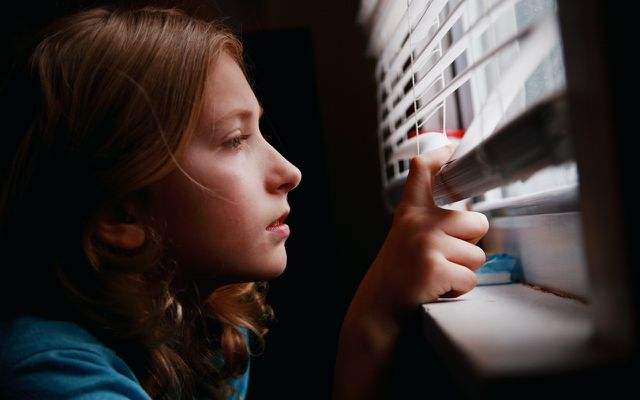
The corona virus unsettles and worries many people – understandably. But by worrying too much, you burden yourself and can even harm your health. You can find out how to stay calm and deal with fears properly here.
The corona virus has completely changed our everyday life: we work from home, are no longer allowed to meet our friends and even have to keep our distance from each other when shopping and walking so as not to infect us or others.
These measures are justified and necessary to curb the spread of the virus. Nevertheless, they can unsettle us. In addition to their health, many people fear for their job, their income and their financial future. How to deal with it? And what can you do to stay calm even in times of crisis?
Quarantine: feeling stressed is natural
First of all, you should allow yourself emotions like fear and stress – they are natural in this situation. Dr. Iris Hauth is Medical Director of the Center for Neurology, Psychiatry, Psychotherapy and Psychosomatics at the Alexian St. Joseph Hospital Berlin-Weißensee. She explains it like this: “Fear is a normal psychological reaction that protects us from doing dangerous things.” In the current situation, for example, she ensures that many people stay in their homes and adhere to exit restrictions.
But fear also triggers physiological reactions. The body switches to “fight or flee” mode. The problem: we cannot directly fight the cause of the fear, the virus, and we cannot flee from it. In other words, we cannot control the situation. This leads to a state of tension and can trigger violent emotions such as panic and anger.

(Photo: CC0 Public Domain / Unsplash – Sharon Mccutcheon)
So a lot of people are struggling with fear and stress right now – that’s normal. Dr. According to Hauth, there is no point in suppressing these feelings. Instead, sufferers should accept it and share it with friends and family members – this can help you to remain calm. It is important not to get into the emotions: violent emotions such as panic, if they last longer, can lead to pronounced stress reactions and increase the risk of developing depression or anxiety disorder. That is why it is important to act consciously against it. You can find out how in the next section.
Stay calm: 8 tips that help
The German Society for Psychiatry and Psychotherapy, Psychosomatics and Neurology (DGPPN) and the World Health Organization (WHO) have put together various tips on how to properly deal with the coronavirus crisis and remain mentally healthy:
- Switch off permanent news programs or push messages – these can stress you in the long run. It’s better to get information from reputable sources like that on a regular basis Federal Ministry of Health or that Robert Koch Institute.
- Create a daily routine. This should be as similar as possible to your usual daily routine. Allow time for activities that are good for your body and your psyche, such as exercise, meditation, enough sleep and your hobbies (if possible). All of this helps you to stay calm in your new everyday life.
- Stay in touch. Exchanging ideas with friends and family about the current situation could relieve pressure and reduce stress. Video calls can increase the feeling of closeness. Older people in particular or people with previous illnesses in your circle of acquaintances should not feel left alone – stay in touch with them.
- Think positive. Acknowledge if you feel overwhelmed, stressed, or worried – that’s normal. But also take care not to step into these feelings. Instead, focus on nice things like fine coffee in the morning or calling a friend. Also try to see the positive aspects: For example, many parents now have more time to spend with their family.
- Get help if you feel that you cannot deal with your worries and fears alone. To do this, first contact general practitioners, clinic outpatients and psychosocial counseling centers.



(Photo: CC0 / Pixabay / FirmBee)
Dr. Hauth, board member of the DGPPN, also advises:
- Doing sports. Exercise has been proven to reduce stress. If you train for half an hour three times a week, you can lower your anxiety and depression levels. The doctor recommends exercise in fresh air. If this is not possible, she advises a workout at the open window.
- Help others. This distracts you and gives you the good feeling that you have done something useful in the evening. For example, call a lonely neighbor or go shopping for people who cannot leave their apartment. Tips: Neighborhood help in times of Corona: You have to know that
- Use online applications, for example fitness videos or apps for mindfulness exercises (for relaxation). Those who feel depressed or have problems with depressive moods can use applications such as “I was depressed“Or”moodgym” To fall back on.



(Photo: CC0 / Pixabay / Free-Photos)
So that children stay calm: What parents should pay attention to
Children are also feeling the effects of the corona epidemic. However, they react to it differently than adults: for example, they often appear scratchy, clingy or get angry faster. To keep your children calm, the WHO advises:
- Listen to your children’s worries and give them extra love and attention.
- Talk to them kindly and try to calm them down.
- Explain to your children in simple words what happens, but also how they can protect themselves from the virus.
- Try to keep your children’s routine going. For example, schoolchildren can continue to learn and do assignments for school. You should also have time to play.
You can find more tips here.
What do people with previous mental illnesses have to consider?
Andreas Meyer-Lindenberg, director of the Central Institute for Mental Health in Mannheim, told the science magazine spectrumthat the quarantine is particularly stressful for people with mental illnesses such as depression: “Those affected are often already in a crisis situation and are dependent on their social network, on friends and family members who help them and take care of them.” that is no longer possible or only possible to a limited extent, it will be very difficult for the patient to remain calm.
Patients with anxiety disorders and addiction patients are also at risk. In addition, many therapy sessions have to be canceled. Those affected now have other options: They can, for example, talk to their therapists by phone or video chat and get exercises for at home. If you need acute help, you can still go to the emergency room, a clinic for psychiatry and psychotherapy in the region or e.g. turn over the pastoral care. The professional association of German psychologists also offers one Corona hotline on.
Since crisis situations lead to greater psychological stress, they are a risk factor for the occurrence of mental illnesses, Meyer-Lindenberg explains in Spektrum. The doctor therefore assumes that the number of mental illnesses due to the corona pandemic will increase.
But the opposite is also conceivable: “For example, people in a crisis often move together in a figurative sense, help and pay more attention to each other.”
Relationship and family: How to avoid quarrels
Not all expert tips can be easily implemented. Because many people do not live alone in their apartments, but with roommates, families or partners. For example, if a person in the household is better able to remain calm if they frequently watch news programs while the other does not want to deal with the topic all the time, an argument can quickly break out.



(Photo: Pixabay / CC0 / Free-Photos)
According to Dr. Very natural. When people with different behaviors suddenly spend a lot of time together, it is important to find compromises. It’s easy with news: you can read it or watch it with headphones. When it comes to major problems, such as childcare during working hours, the adults have to talk to each other and find a solution together.
Relationships are not only tested in home quarantine. Solving problems together can also improve and strengthen cohesion, says Dr. Hauth. At the same time, it is important not only to see the negative. For example, many families and couples now have the chance to spend more time together. If you use this time wisely, it helps everyone to distract themselves and make the best of the situation.
Read more on Techzle.com:
- Home remedies for corona: Virologist explains whether onions, inhalations, etc. help
- Corona times: How to shop online sensibly now
- Games against boredom: how to keep children busy during the coronavirus crisis